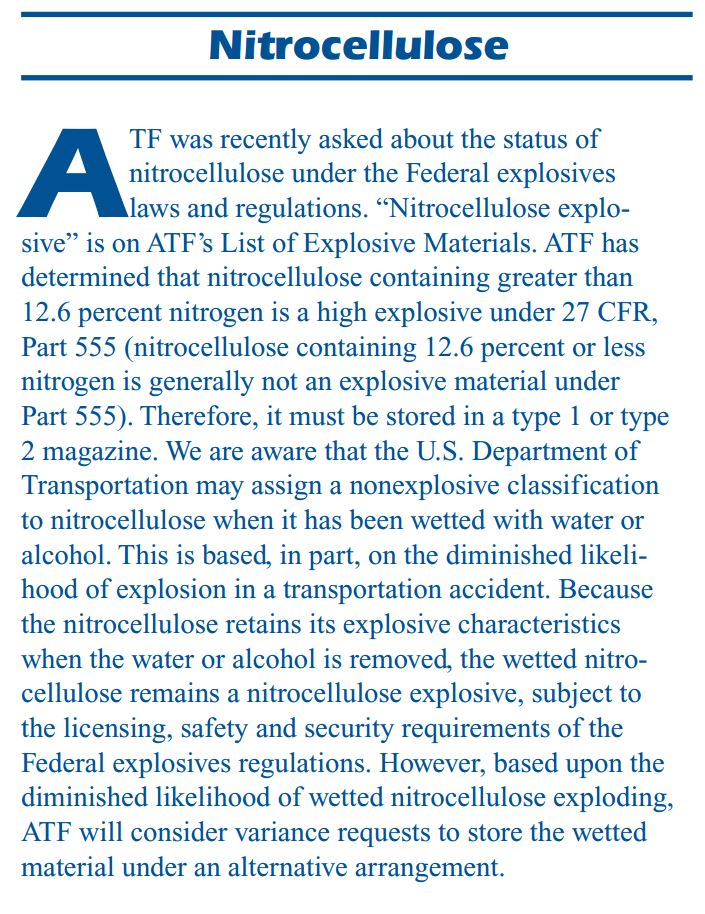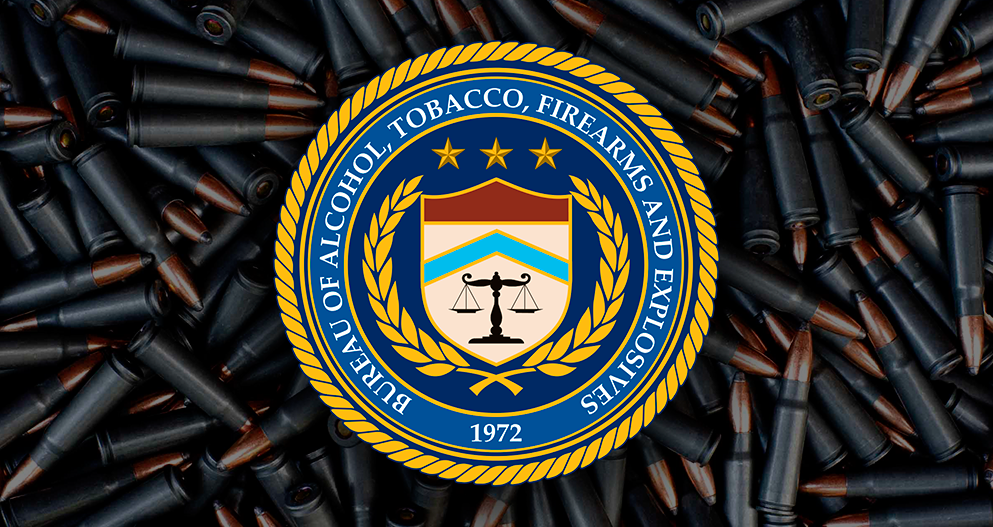UPDATE:9/1/16
Earlier this summer, ATF released an Explosives Industry Newsletter that changed the agency’s treatment of nitrocellulose, the primary component in smokeless powders used in modern ammunition. This change had the potential to seriously disrupt ammunition supply in the United States because it changed a long-standing ATF policy that exempted properly “wetted” nitrocellulose from treatment as an explosive under federal law.
NRA and industry raised these concerns to ATF and any change in ATF’s treatment of nitrocellulose is now officially delayed. In an addendum to the earlier newsletter, ATF announced that it “will conduct further industry outreach concerning wetted Nitrocellulose. In the interim, previously authorized industry practices concerning wetted Nitrocellulose will not be affected.”
While the addendum doesn’t indicate that ATF has permanently abandoned this change to nitrocellulose regulation, smokeless powder manufacturers will be permitted to continue normal operation, at least for the time being. NRA will continue to work to ensure that any future change to nitrocellulose regulation will not affect ammunition supply.
ATF Reclassifies Nitrocellulose Without Shooting/Hunting Industry Input
The Bureau of Alcohol, Tobacco, Firearms and Explosives (ATF) is making some changes that are really raising some eyebrows. They have decided to reclassify wetted nitrocellulose as a high explosive under the federal explosives laws.
Nitrocellulose is a component of smokeless powder that is used in small-arms ammunition and artillery fire. Smokeless powder allowed for the development of modern semi- and fully automatic firearms. In times before smokeless powder, burnt black powder produced a thick, heavy residue that caused autoloading firearms to jam. Smokeless powder containing nitrocellulose exhibits none of these properties.
Explained in the ATF Newsletter is the change that came as a surprise to most, without any chance for the industry to have any input. Did the ATF really think that a newsletter was the best way to go about a policy change with such heavy exemptions attached?

A lot of people would agree that this is an irresponsible policy change, and the fact that it came in the form of a newsletter is frustrating for many. It sounds like the legal battle is just beginning on this one, but hopefully they get to the bottom of why this change was made so drastically.


